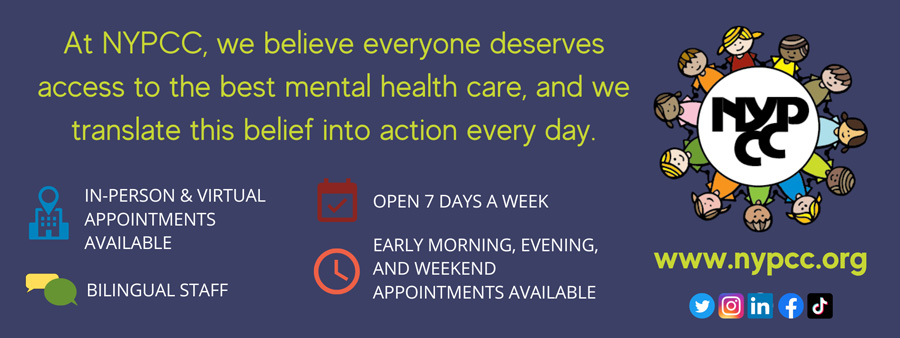As more women navigate pregnancy and early motherhood while continuing their careers, organizations must recognize that mental health support during the perinatal period is critical to employee wellness, engagement, and retention. Untreated perinatal mental health conditions, including depression, anxiety, and postpartum disorders, affect at least 1 in 5 women, and these challenges are often exacerbated by unsupportive work environments (Maternal Mental Health Leadership Alliance, 2023).

As a mother with a full-time career as a program administrator at a community mental health center, I know firsthand the challenges that often come with balancing motherhood and work. I remember the anxiety of returning to the office when my baby was just 2 months old. I still felt like I did not know what to expect and was still waiting for my life to go back to “normal”. However, I quickly discovered that when I became a mother, I joined a new community; a community of women that support each other. While the adjustment back to work took time, having the support from my colleagues and other mothers made a difference.
At New York Psychotherapy and Counseling Center (NYPCC), we believe that mental health support should begin not just in the clinic and the community we serve, but in the workplace. It is crucial that employers not only abide by federal and state policies and protections but also work individually with staff to account for their unique needs. Employers need to be flexible to encourage staff to take advantage of maternity/paternity leave to build a family-friendly culture.
This article explores the landscape of maternal mental health in the workplace, current U.S. policies, best practices from the field, and how implementing these strategies can transform organizational culture for the better.
Becoming a mother is life-changing, but for working women, this transition often brings emotional strain rather than celebration. Between managing hormonal shifts, childcare responsibilities, and professional expectations, many mothers experience increased stress, depression, or anxiety, conditions that, if unsupported, can have profound consequences for both employee and employer. An average of 1 out of 4 women exits the workforce during the first year of motherhood (Time, June 2025).
A 2022 study by the American College of Obstetricians and Gynecologists reported that only 15% of new mothers in the U.S. receive adequate screening or treatment for postpartum mental health issues. “Post Partum Depression is the most common mental disorder diagnosed among women during the perinatal period, with an estimated prevalence of 13-19%” (Costa et al, 2021). These women are also more likely to leave the workforce, either temporarily or permanently, due to burnout, lack of accommodations, or stigma (ACOG, 2022). Such attrition costs U.S. businesses billions annually in lost productivity, training, and turnover-related expenses.
While the United States still lags behind many developed nations in maternal support, recent federal and state initiatives are helping to bridge the gap:
The Family and Medical Leave Act (FMLA)
FMLA provides eligible employees with 12 weeks of unpaid, job-protected leave for family or medical reasons, including childbirth and mental health conditions. However, only about 60% of US workers are eligible, and the unpaid nature of the leave is often a barrier (U.S. Department of Labor, 2023). Women who are not able to take the 12-week leave have an increased risk of postpartum depression, with a reported 1 out of 4 mothers returning to work within ten days of giving birth (Policy Center for Maternal Mental Health, 2025).
New York State Paid Family Leave (PFL)
Starting in 2021, all eligible workers in New York State can take up to 12 weeks of paid time off for bonding following the birth of a child in their first year, adoption, or foster placement. Workers can get paid up to 67% of their salary, and immigration status does not affect eligibility (paidfamilyleave.ny.gov, 2025)
The Pregnant Workers Fairness Act (PWFA)
Effective as of June 2023, the PWFA requires employers with 15+ employees to provide reasonable accommodation for known limitations related to pregnancy, childbirth, or related conditions, including mental health (EEOC, 2023).
The Providing Urgent Maternal Protections (PUMP) for Nursing Mothers Act
Expanded in 2023, this law now ensures break time and private space for lactating employees, promoting a more supportive postnatal environment.
These policies form a foundation, but real change requires going beyond compliance.
Paid Medical Leave During Pregnancy
New York launched a mandate requiring at least 20 hours of paid prenatal leave for all private-sector employees to attend medical appointments while pregnant, spotlighting practical steps toward better maternal workplace support. (AP News, Jan 2025)
At NYPCC, we are committed to moving from reactive to proactive. Below are evidence-based best practices we recommend and implement:
Extended and Paid Parental Leave
Paid leave is a proven buffer against postpartum depression. A 2021 study from Harvard’s T.H. Chan School of Public Health found that women who received 12 weeks or more of paid leave were 30% less likely to report depressive symptoms than those who did not.
Best Practice: Offer a minimum of 12–16 weeks of paid leave to parents and at least 4–6 weeks for partners, encouraging shared caregiving and reducing stigma.
Flexible Work Arrangements
Return-to-work anxiety is a common trigger for perinatal mental health challenges. Many women feel rushed when returning to work. Flexibility in hours, hybrid models, and task reprioritization ease this transition.
Best Practice: Implement gradual return-to-work programs, such as phased reentry or part-time arrangements during the first three months after leave.
Virtual Mental Health Access
Providing access to Employee Assistance Programs (EAPs) normalizes help-seeking and reduces stigma. It is important for managers to educate and encourage employees to utilize the services available to them. By providing free or subsidized counseling sessions, employers can help reduce financial barriers to help.
Best Practice: Ensure your health plan includes perinatal mental health services. Mindfulness-Based Therapy Groups have proven effective in helping mothers cope with the stressors related to a return to work (Costa et al, 2021).
Manager Support
One of the most common experiences of a working mother is the feeling of being “stretched too thin”, a sign of role overload. Adjusting to the new role of “mother” while still performing at work can feel overwhelming. Oftentimes, mothers are forced to fulfill the needs of others (i.e., their employer or families) before taking care of their own wellness needs, due to lack of time or energy. That is why the first line of support is often the manager. As an administrator and a mother myself, I feel sensitive to the needs of a first-time mother returning to work. I think it is important for mothers to know they are not alone, and that as an employer, we want to find the best back-to-work plan and understand it may take up to a year to combine the new role of “mother and employee”. The benefit of paid leave is crucial; however, it does not prepare the mother for her new identity, that will come with time.
To effectively change a culture at work, to be more family-friendly, and to meet the needs of our employees, leadership must model empathy, normalize conversations about mental health, and demonstrate flexibility. Support does not end with maternity leave. Employers need to be flexible and accommodate the individual needs of the family. Supporting maternal mental health in the workplace is not only a moral obligation but a strategic advantage. It fosters employee loyalty, improves well-being, enhances productivity, and signals that your organization values the whole person, not just the role they play.
As one of the largest outpatient community mental health organizations in New York, we urge employers to view maternal mental health not as a niche concern but as an essential pillar of any inclusive, forward-thinking workplace. With the right policies, partnerships, and cultural commitment, we can ensure that no mother is forced to choose between her mental health and her career.
Nichole Renadette, LCSW, is a Senior Program Administrator at New York Psychotherapy and Counseling Center (NYPCC).
References
American College of Obstetricians and Gynecologists. (2022). Mental Health Disorders in the Perinatal Period. https://www.acog.org
“Why Every New Parent Should Get a ‘Transition Month’ at Work” (Time, June 2025) https://time.com/7293659/transition-month-new-moms-work-essay/
Costa, J.; Santos, O.; Virgolino, A.; Pereira, M.E.; Stefanovska-Petkovska, M.; Silva, H.; Navarro-Costa, P.; Barbosa, M.; das Neves, R.C.; Duarte e Silva, I.; et al. MAternal Mental Health in the WORKplace (MAMH@WORK): A Protocol for Promoting Perinatal Maternal Mental Health and Wellbeing. Int. J. Environ. Res. Public Health 2021, 18, 2558. https://www.mdpi.com/1660-4601/18/5/2558
Policy Center for Maternal Mental Health. (2025, March). Paid Family and Medical Leave and Maternal Mental Health (Issue Brief). http://www.doi.org/10.69764/PFLF2025
Centers for Disease Control and Prevention. (2022). Postpartum Depression Facts. https://www.cdc.gov
AP News. (2025). New York Employers Must Now Offer Paid Medical Leave During Pregnancy. https://apnews.com
Maternal Mental Health Leadership Alliance. (2023). Maternal Mental Health in the Workplace. https://www.mmhla.org
U.S. Department of Labor. (2023). Family and Medical Leave Act (FMLA). https://www.dol.gov
Equal Employment Opportunity Commission. (2023). Pregnant Workers Fairness Act. https://www.eeoc.gov
Harvard T.H. Chan School of Public Health. (2021). Paid Parental Leave and Mental Health Outcomes. https://www.hsph.harvard.edu
American Psychological Association. (2022). Remote Work and Employee Burnout. https://www.apa.org
McCardel, Rachel Elizabeth; Loedding, Emily Hannah; Padilla, Heather Marie. “Examining the Relationship Between Return to Work After Giving Birth and Maternal Mental Health: A Systematic Review. Maternal and Child Health Journal (2022) 26:1917-1943 https://doi.org/10.1007/s10995-022-03489-0





